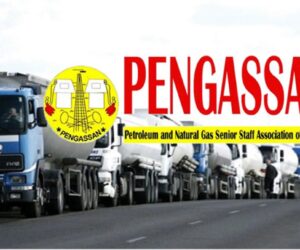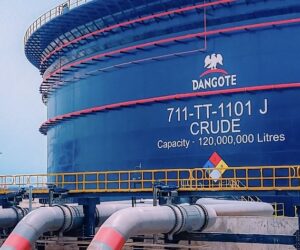By Sola Ojo, Abuja
As the crisis in Nigeria’s petroleum industry deepens with the face-off between Dangote Refinery and key industry unions such as the Petroleum and Natural Gas Senior Staff Association of Nigeria (PENGASSAN) and the Nigeria Union of Petroleum and Natural Gas Workers (NUPENG) dominating headlines, concerned petrol station workers like pump attendants, security personnel, cleaners, and managers, among others, have decried neglect.
This category of workers, who serve as the last link between fuel and consumers, say they are “dying in silence”, trapped in a cycle of neglect, exploitation, and silence.
Under the banner of the Concerned Petrol Station Workers (CPSWs), the group, in a press statement by Ibrahim Zango on Sunday, October 5, lamented the poor working conditions, meagre wages, and abuse they endure daily.
“We are the ones who stand under the scorching sun and in the rain to serve millions every day, yet we are treated as if our lives don’t matter.
“We are dying in silence for fear of being molested or frustrated for raising our voices, even when we are like the engine room of the Nigerian petroleum sector,” he added.
Despite being vital to Nigeria’s petroleum distribution system, the workers said they remain among the most underpaid and undervalued groups in the country’s labour force.
Many, they claimed, earn as little as N20,000 to N30,000 monthly, far below the national cost of living.
“How do you survive on N20,000 in today’s Nigeria? We don’t even get allowances or medical support. If you complain, you risk losing your job,” one attendant decried.
According to the statement, petrol station workers are routinely forced to pay for fuel shortages caused by faulty pumps or accounting discrepancies beyond their control.
In addition, they face daily exposure to toxic fumes, robbery attacks, and other workplace hazards, often without protective gear or insurance, Zango said.
“When there’s a fire outbreak, robbery, or accident, the owners disappear, and the attendants are left to suffer. We are the unsung heroes of Nigeria’s oil economy,” he said.
The group also accused some station owners of silencing workers who attempt to unionise or demand fair treatment, using intimidation and physical harassment to suppress activism.
“Even the law doesn’t seem to protect us. We can’t form unions, and NUPENG has not organised us effectively. We are just on our own,” another worker claimed.
The CPSWs called on the Federal Government, the Ministry of Labour and Employment, and the Nigeria Labour Congress (NLC) to intervene and ensure that petrol station workers are included in ongoing discussions on petroleum sector reforms.
Their demands include fair wages commensurate with their role in the fuel distribution chain, improved working conditions including rest breaks, safety gear, and regulated shifts, and union protection to freely organise without intimidation.
Other demands include health and safety measures to mitigate occupational hazards and immediate action by NUPENG to organise effective leadership for petrol station workers at all levels.
“Petrol station workers are not invisible. We are not expendable. We are Nigerians who keep the economy running, often at the expense of our own health and dignity.
“Our voices must no longer be silenced. Our cry must no longer go unheard. It is time to recognise, respect, and uplift the frontline workers of the petroleum sector,” Zango said.








